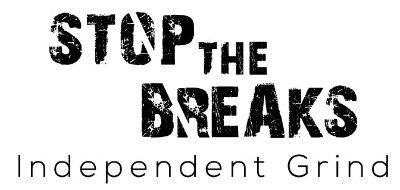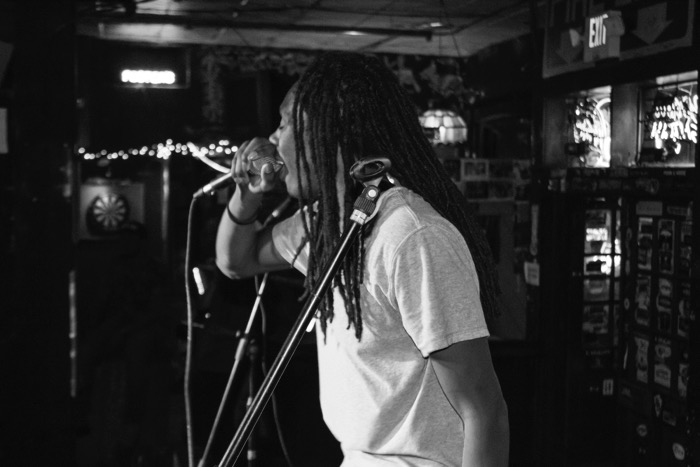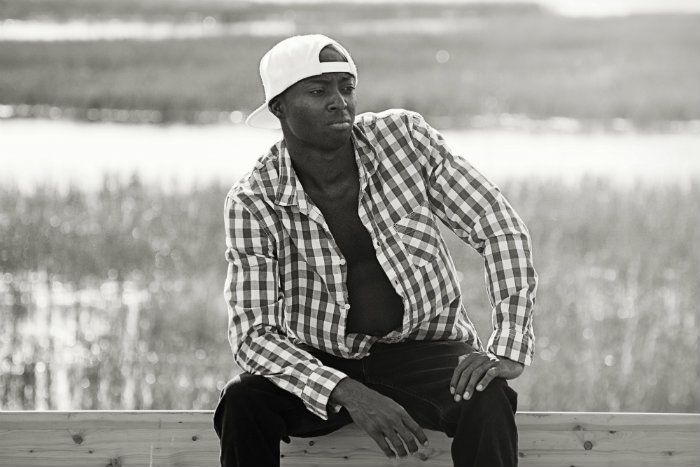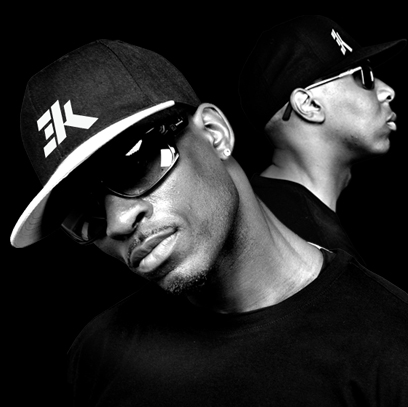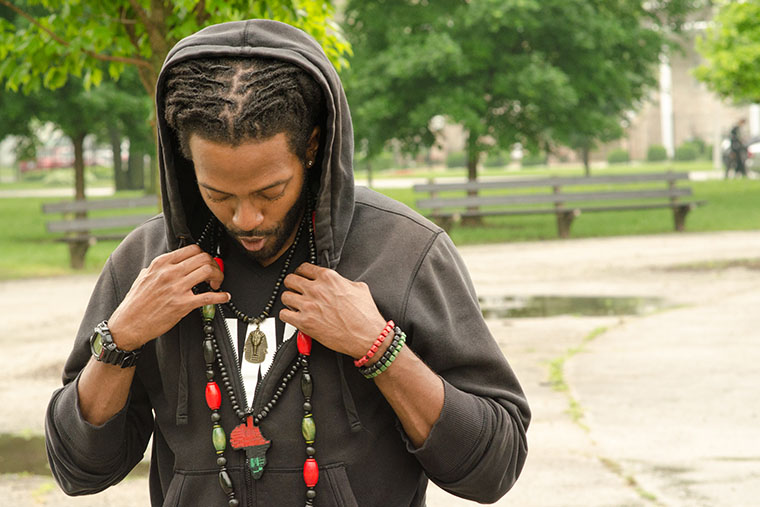
Artist Bio: Geri D’ Fyniz is an American Music Artist, Songwriter, Music Producer and Entrepreneur from Chicago, IL.
Born as the youngest to a former Print Model/Cosmetologist and Street Hustler allowed Geri D’ Fyniz to embrace different versions of hustle and ownership.
Geri’s main agenda is to create content owned and controlled by Black people that encourages empowerment as a daily lifestyle for Black people.
With the debut Street Album Black C.O.D.E aka Black Commitment of Daily Empowerment, Geri D’ Fyniz advocates for the redistribution of wealth, the unapologetic display of black love, and the resurgence of the black warrior class.
1) How long have you been doing what you’re doing and how did you get started in the first place?
I have been Singing since I was 6. My entire family is actually musically inclined so this turned me into a singer before I could formulate complete sentences.
I then fell in love with poetry at an early age so I had note books full of poems about life, my previous struggles, and ambitious things I wanted to achieve.
When it came to being in the “Music Industry” I originally wanted to be a DJ. I remember making beats with the preset drum loops on my Casio keyboard when I was 12 and saying random things in my mothers Karaoke microphone. I felt like I was rocking my imaginary crowd the way a DJ did.
I used to play around at school rapping and free styling when I was 12, but I never really took it that serious. That same year I started taking piano lessons even though I already knew how to play the piano by ear.
Years later after I graduated high school I began playing the drums at my church and doing this made me take beat making a lot more serious. However, it wasn’t until 2003 when rapper T.I. dropped the album “Trap Muzik” that I was inspired and knew I wanted to become a professional rapper.
2) What sort of hurdles and obstacles did you face to get to where you are now?
When I first started recording music, I used to do so at friends houses, but experienced tension with them when they would delete my songs or not allow me to take recordings home. I didn’t know if it was jealousy or not, but I decided to pay for professional studio time.
However, one thing I wish I would have done differently when I was younger was learn more about the recording and production process. I lost a lot of money dealing with janky engineers and just being ignorant to the recording process in general.
I’m thankful for those setbacks though, because they helped me to adopt a mindset of ownership early and I invested in my own studio to help me get over the learning curve and established my own label so that I can create the kind of music I want when I want.
3) What’s the hardest thing about being an independent artist?
From my experience, there are several things that make it hard as an independent artist. For starters, finding my voice. It’s hella music coming out nowadays and there are so many creative individuals in the world. So it can be a bit intimidating trying to find your lane in what appears to be an over saturated industry.
Also getting that initial fan to buy into your message is tough. When I was younger, I thought just because I’m handsome I can just get women to be my fans off jump, but I learned real quick that they can think you’re fine, but at the same time not spend a dime supporting your music career.
Making the natural connection with people is most definitely one of the hardest things as an Indie because often times you don’t have a bunch of money to promote yourself so you have to be resourceful.
Then you are doing all the work alone, so you have to be creative and flexible. After that you want to make sure that you don’t come off as a sales person because people see through that and will just ignore you. Having value to offer helps because once you have that your fans will buy whatever you place a price tag on.
4) Are there any independent hip-hop artists out there who inspire and motivate you?
Absolutely! I’m inspired and motivated by Lecrae, Big KRIT, and 3DNatee.
5) Where do you see yourself in 5 years?
I see myself running my Multi Media Imprint D’ Fyniz Enterprises which currently specializes in music, internet content creation, and Plant Based living among Black people. I also would like to drop at least 2-3 more projects along with writing and producing for independent and major artists of the future.
6) Who were the first influences on your music and style?
Two of my first influences outside of music were my Mom and Grandpa. My mother would always play diverse music around me from Tina Turner and Whitney Houston to New Edition and solo Bobby Brown.
Doing this gave me an appreciation for different styles. Next my Grandpa would always sing around me and I can remember watching a documentary with him on Sam Cooke and how he basically was “Berry Gordy” before Berry Gordy with his discovery and production of numerous artists.
One of those Artists in particular Bobby Womack is one of my music influences. His music is extremely soulful, unapologetic, and heartfelt. Next on the Hip Hop side I was influenced by 2Pac, KRS-One, Ice Cube, Busta Rhymez, and T.I.
As a fan of Hip Hop, I loved the unapologetic delivery of 2Pac, KRS-One, and Ice Cube. As a person I also loved the High energy that Busta Rhymes and T.I. displayed.
7) If you could choose to collaborate with 3 other artists on the same track – who would they be?
I would love to perform on Neptunes produced track with Andre 3000, Janelle Monae, and Big K.R.I.T.
8) How do you currently make money as an independent hip-hop artists?
I have my own business outside of music that specializes in legal document preparation, tax services, notarial acts, and fingerprinting.
9) What are you hoping to achieve with your music?
My main goal is to share an often silenced element of Hip Hop which is standing up and fighting oppression. Hip Hop was started due to oppression in the South Bronx, but that message has been muted and ignored over the years.
Now in recent times it has been coming back, but it generally doesn’t sustain because it may come off as too preachy to most people. I want to make it a lifestyle instead of a trend so that people do it as naturally as breathing.
10) What do you think is the biggest barrier an artist like yourself has to overcome, to gain commercial success?
One of the biggest things would be finding my own niche market. I make music about Black Empowerment, but my songs aren’t exactly along the lines of Public Enemy or A Tribe Called Quest. I make music for the person that doesn’t like racism, but may not have read a Malcolm X book or marched in a protest.
A lot of my listeners like going to the club or buying Air Jordan shoes, but when you get into conversations about Black Empowerment, they are ridiculed and ignored.
I want my music to be an introduction in to consciousness for that ignored audience. The biggest challenge with that is making music that they will enjoy without being judgmental also while still maintaining the same high energy and excitement of today’s music industry while staying true to myself as a person.
